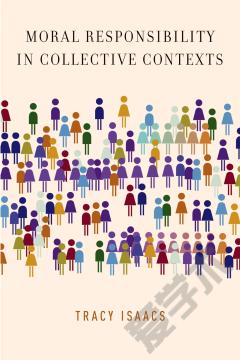Accountability for Collective Wrongdoing
Ideas of collective responsibility challenge the doctrine of individual responsibility that is the dominant paradigm in law and liberal political theory. But little attention is given to the consequences of holding groups accountable for wrongdoing. Groups are not amenable to punishment in the way that individuals are. Can they be punished – and if so, how – or are other remedies available? The topic crosses the borders of law, philosophy and political science, and in this volume specialists in all three areas contribute their perspectives. They examine the limits of individual criminal liability in addressing atrocity, the meanings of punishment and responsibility, the distribution of group punishment to a group's members, and the means by which collective accountability can be expressed. In doing so, they reflect on the legacy of the Nuremberg Trials, on the philosophical understanding of collective responsibility, and on the place of collective accountability in international political relations.
{{comment.content}}








 京公网安备 11010802027623号
京公网安备 11010802027623号